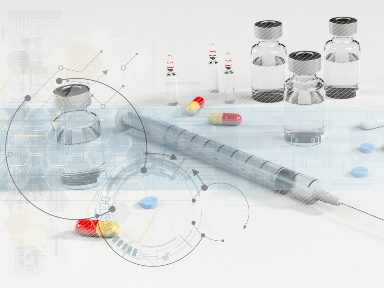The Pharmaceutical Industry is Proving its Resilience Amid the COVID-19 Pandemic
(2022年)https://www.pharmasources.com/suppliers/catid/medical-supplies-3001.html
https://www.pharmasources.com/products/countall-n-catid/bio-products-104-page-1
In the past year, the pharmaceutical industry has been in the limelight amid the COVID-19 pandemic. From the development of rapid test kits to the manufacture of vaccines, in 2020 the pharmaceutical industry worldwide was able to prove its resilience in times of crisis. The rise of the COVID-19 pandemic though is only one aspect that contributed to this burst in net worth. Changing demands of healthcare systems, the push in demand for personalized treatments and therapeutics has also boost the pharmaceutical industry to where it is today. Business models of pharmaceutical companies would also see some shifts in focus, driven by five key forces as highlighted in a report by Deloitte. These five key forces include; development of preventive and early detection, customized treatments for personalized medicine, curative therapies, digital therapeutics, and precision intervention.
Prioritization of digital transformation within the industry that allow for actionable health insights from health data and artificial intelligence will see the pharmaceutical industry incline towards the use of more digital technology. Shifts in how diseases are identified, prevented, treated or cured may lead to how business models will change in the pharmaceutical industry. The adoption of continuous manufacturing to produce a pharmaceutical product to reduce cost and human error is another factor that would evolve the business models of pharmaceutical companies.
Within Asia, the growing ageing population has caused a paradigm shift in demographics and priorities of healthcare systems. Increase in prevalence of chronic diseases such as hypertension and cancer has drawn greater focus to preventive care and early detection and intervention in order to support the rise in elderly within Asian countries and the health complications that comes with ageing. In China, 95 percent of diseases are attributed to chronic diseases. As with other Asian countries such as Japan, Malaysia, Vietnam, Singapore, and Thailand, the incidence of disease due to chronic diseases are able 80 percent. This rising trend would push the demand for chronic disease care. This demand would be met by increase in the number of clinical trials testing for new and improved ways of disease treatment and detection. The use of digital technology in managing health conditions will also evolve how pharmaceutical companies develop and manufacture treatments and therapies in the coming future.
Report by The Economist Intelligence Unit showed that the aggregate pharmaceutical market in Asia rose by 28 percent between 2012 and 2017. This figure was projected to increase to 42 percent from 2018 to 2022. On top of that increase in pharmaceutical spending by emerging markets such as Indonesia and Thailand will see and increase between 5 to 10 percent over the next five years. Expansion of the pharmaceutical industry in Asia is enhanced by the region’s GDP growth. Other factors such as increase in demand for better healthcare services due to growing disposable incomes would lead to increase in purchase of treatments and therapeutics.
China is also expected to become the world’s second-largest pharmaceutical market by 2022, with India narrowing the gap with South Korea as Asia’s third largest and the world’s eighth largest pharmaceutical market. In addition, there are many trustworthy medical supplies manufacturers and medical device sales companies in China providing bio pharmaceutical products. Based on a report by Deloitte, the increase in High-Net-Worth Individuals in China will also boost healthcare expenditures on more products, together with the growing tech-savvy generation of consumers, the way patients and consumers behave towards healthcare and lifestyle would change the way the pharmaceutical industry will provide treatments and therapies.
The COVID-19 pandemic has also seen an unprecedented change in the way healthcare systems work. With lockdowns and movement restrictions, the way patients consult healthcare professionals for care and obtain healthcare information has evolved to adopt remote and digital methods. Wearables and digital healthcare technologies has also enabled the generation of healthcare information by the patient for tele-monitoring. This way doctors and healthcare professionals would be able to obtain real-time information about the patient remotely.
The pharmaceutical industry is dynamic and will have to be adapted as generations change and demands shift to meet the healthcare needs of populations. In Asia, the rise in spending of pharmaceuticals due to increase disposable income, and growing ageing populations will push the pharmaceutical industry to evolve in order to support changes in healthcare demands of a country. Digital transformation in disease treatment, prevention, and detection will also change the way pharmaceutical companies operate their business and provide products that use digital technology. Artificial intelligence and the availability of a vast amount of healthcare data will also help enhance the digital healthcare transformation.

- このできごとのURL:


コメント